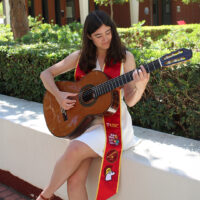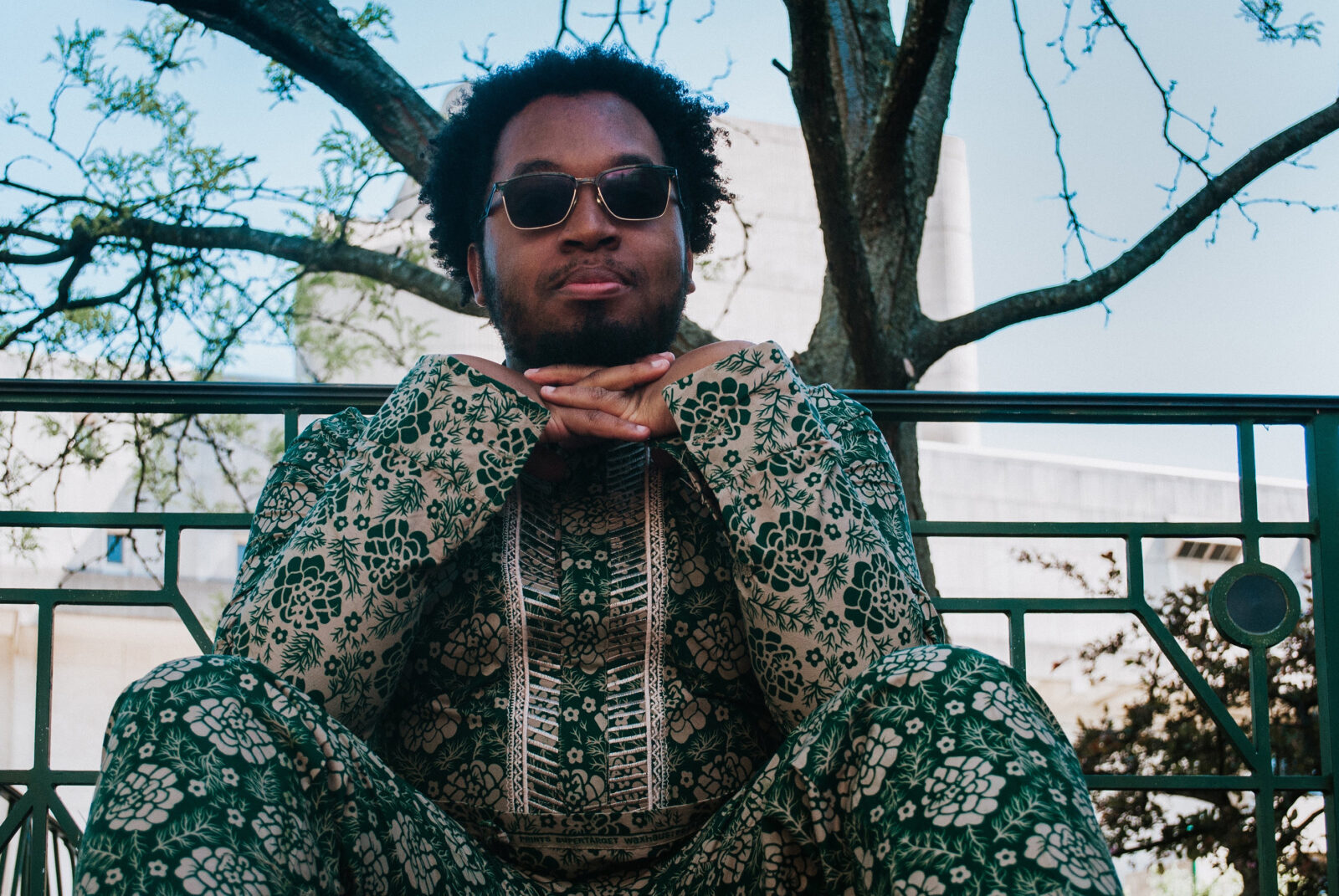
Meet the Cohort: Wilfred Farquharson
By Evan Calbi
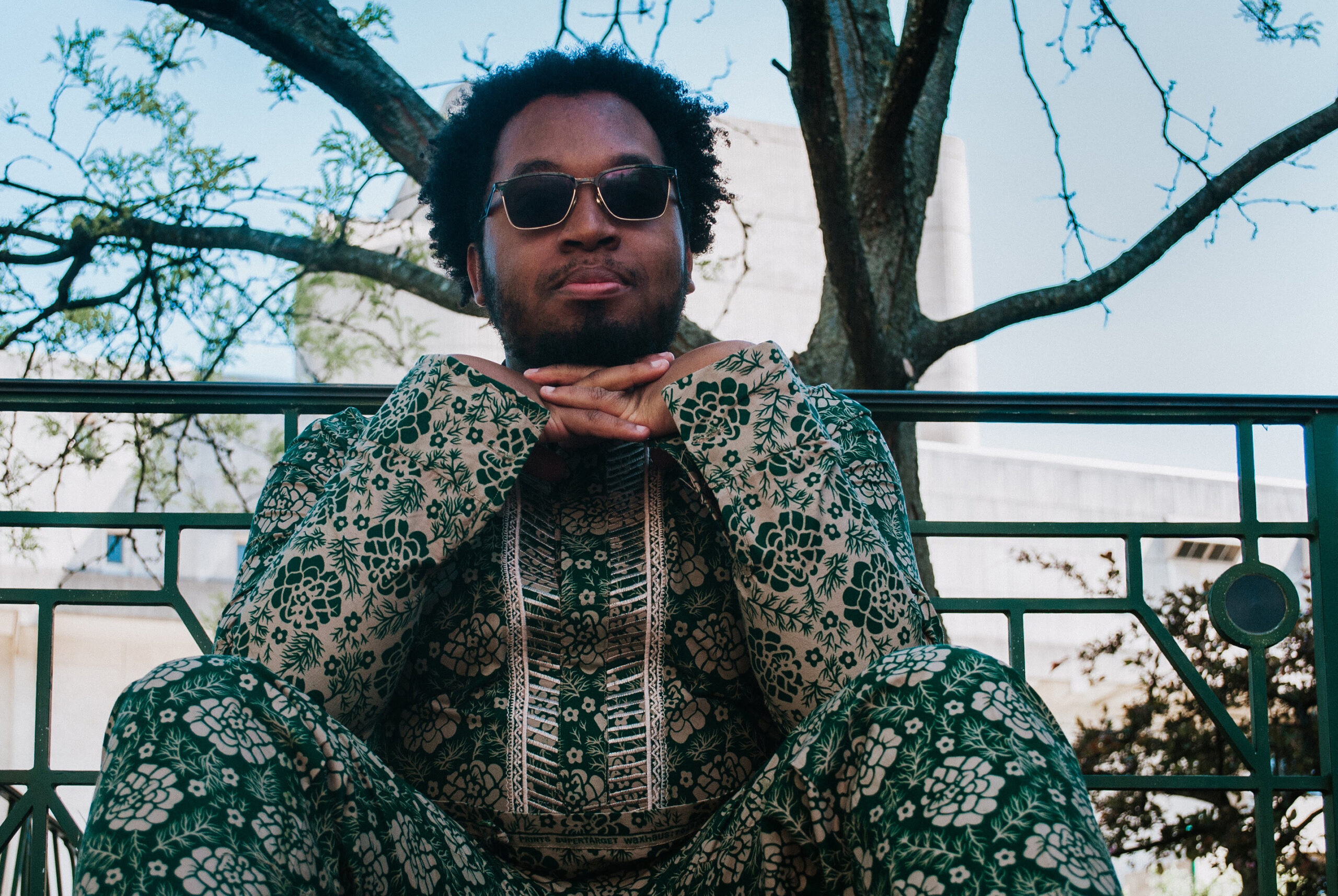
(Photo of Wilfred Farquharson by Sarah McMillian)
Wilfred Farquharson is a member of the second cohort of the Los Angeles Orchestra Fellowship designed to increase diversity in American orchestras.
The Los Angeles Orchestra Fellowship, a program designed to increase diversity in American orchestras, has announced its second cohort that includes violist Wilfred Farquharson, violist Jay Julio Laureta, horn player Malik Taylor and cellist Myles Yeazell. Launched in 2018, the groundbreaking program was conceived by a partnership of Inner City Youth Orchestra of Los Angeles (ICYOLA), the country’s largest African-American-majority youth orchestra; Los Angeles Chamber Orchestra (LACO), one of the world’s leading chamber orchestras; and USC Thornton, one of the country’s top music programs.
Violist Wilfred Farquharson, who grew up in Atlanta, cites Tchaikovsky’s The Nutcracker as one of his first musical inspirations. When he joined his school orchestra in fifth grade and his teacher brought out instruments for him to choose from, there was one he had never heard of before: the viola. Out of sheer curiosity he chose it, his first time trying to play anything, and he has been in love with the instrument ever since.
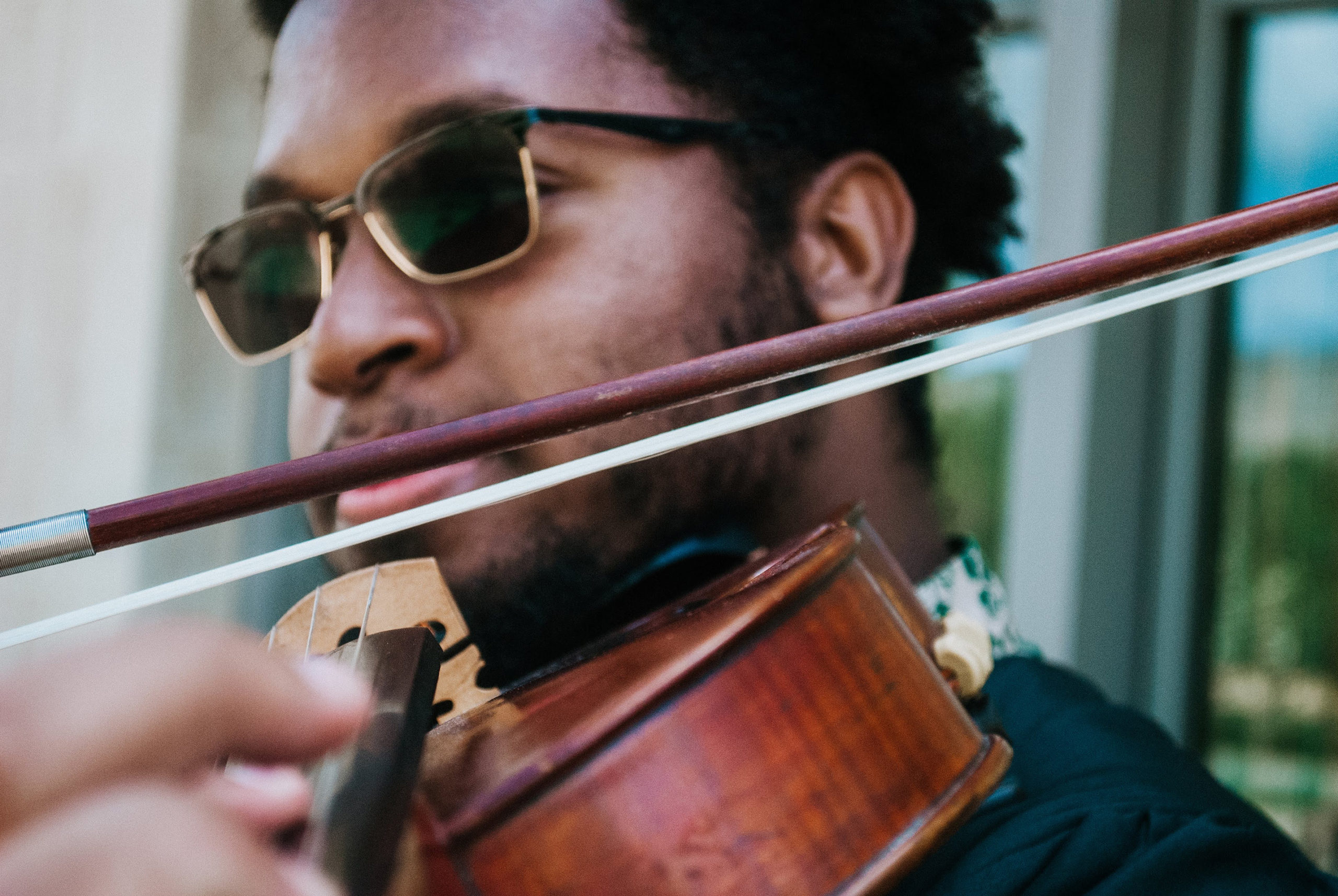
(Photo by Sarah McMillian)
Since beginning the viola, Farquharson has had the opportunity to study with many great artists and influencers. In middle school, he studied with Wesley Collins and Lana Teko-Ahatefou who mentored him until he got into the Atlanta Symphony Orchestra’s Talent Development Program (TDP). He remained in the TDP through high school where he studied with Jessica Oudin and attended the Sewanee Summer Music Festival in 2013, Meadowmount School of Music in 2014 and the Bowdoin International Music Festival in 2015 and 2016. At these programs he was mentored by artists such as Carol Rodland, Jeffrey Irvine, Phillip Ying, Amir Eldan, Patricia McCarty, Kate Lewis, Daphne Gehrling and Matthew Michelic.
Farquharson graduated from the Jacobs School of Music at Indiana University where he studied privately with Masumi Per Rostad and Stephen Wyrcyzynski. At Jacobs, he had the opportunity to be coached and mentored by the Pacifica Quartet, Ed Gazouleas, Jorja Fleezanis and Anne Epperson.
As an incoming fellow in the Los Angeles Orchestra Fellowship, Farquharson will pursue a Graduate Certificate at USC Thornton while mentoring the students of ICYOLA where he aspires to be a model of excellence for other aspiring musicians of color. Recently, Farquharson answered questions about the fellowship, the opportunity it offers, and the need for greater equity in classical music.
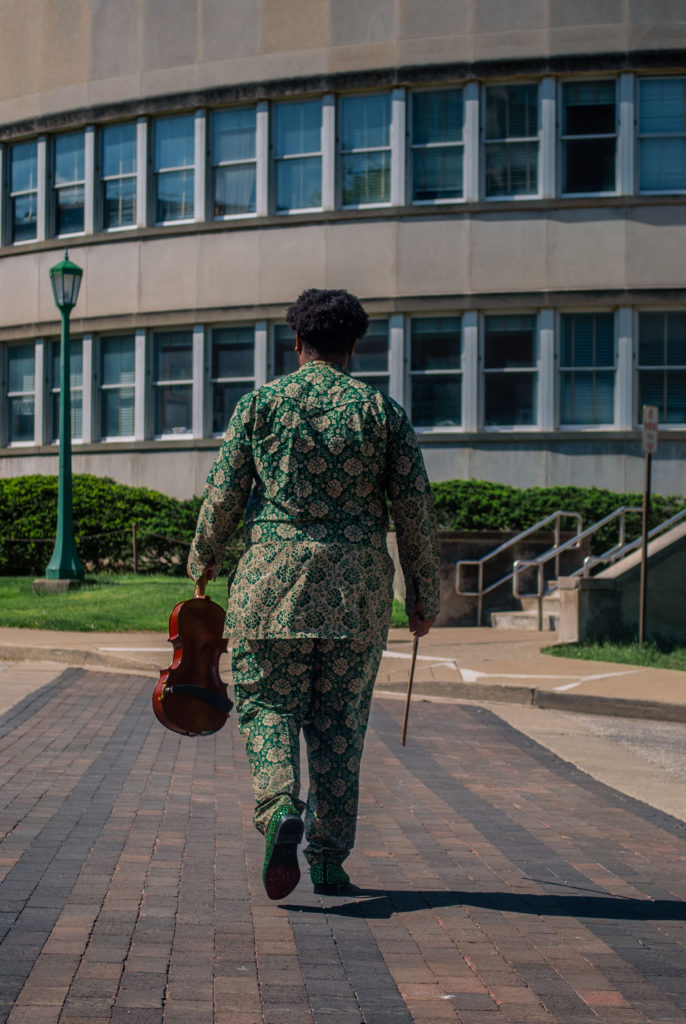
(Photo by Sarah McMillian)
How does it feel to receive this opportunity?
Receiving this fellowship fills me with immense joy and honor; however, I also feel a great sense of duty comes with this fellowship. The joy I feel comes from the friends, family and teachers who are so happy and proud of me for receiving this fellowship. I am reminded that I benefit from all the efforts of my Black predecessors who paved the way for me to even have had the opportunity to audition for something like this, and I am my ancestors’ wildest dream come true. It is an honor to be continuing the legacy of my family and everyone else who has invested so much love into my life, and to have the opportunity with this program to work with the other fellows and mentors who I admire and respect so much.
It is so great that the industry is recognizing the need for greater diversity. What further changes are you personally hoping to see in the coming years and what can we all do to help?
I am personally hoping to see every institution call for more diversity in the classical music world and for them to have more diversity, inclusion and equity in their own institutions/organizations. I recognize that some institutions have made changes this summer to be more diverse; however, the quickness with which they have been made shows those kinds of changes have always been possible. What will help cement these changes as the new foundation for more progress are more inclusive initiatives throughout institutions, such as having more Black and Brown people in upper administration, on every committee and as leaders of these institutions/organizations, as well as performing, in addition to increasing and consistently programming music of Black composers.
Furthermore, I would love to see a change in the accessibility of classical music to Black and Brown kids. Classical music is an expensive career to pursue, which inherently limits which members of our society can pursue it. Growing up, I met so many talented kids of color who were not able to pursue music outside of their public schools because of all the extra costs that come with this career.
I am in this fellowship now because, when my family could not afford music lessons when I was 13, Dr. Lana Teko-Ahatefou taught me free of charge for a full year to help get me into the Atlanta Symphony Orchestra’s Talent Development Program. The commonality of Dr. Teko-Ahatefou and the ASO’s TDP is that they prioritize the access of classical music to Black and Brown students so that the classical music world sees an increase in Black and Brown musicians.

